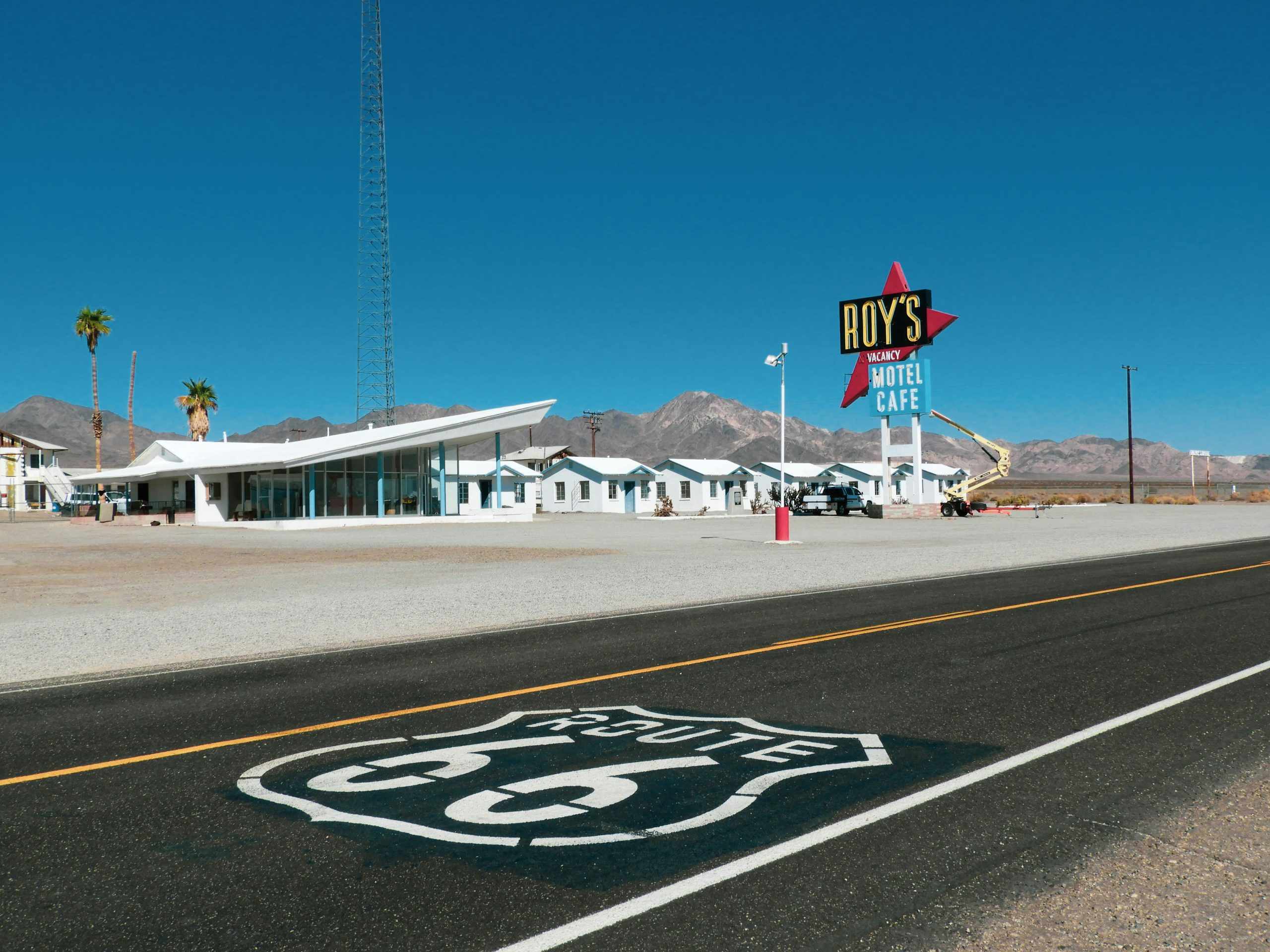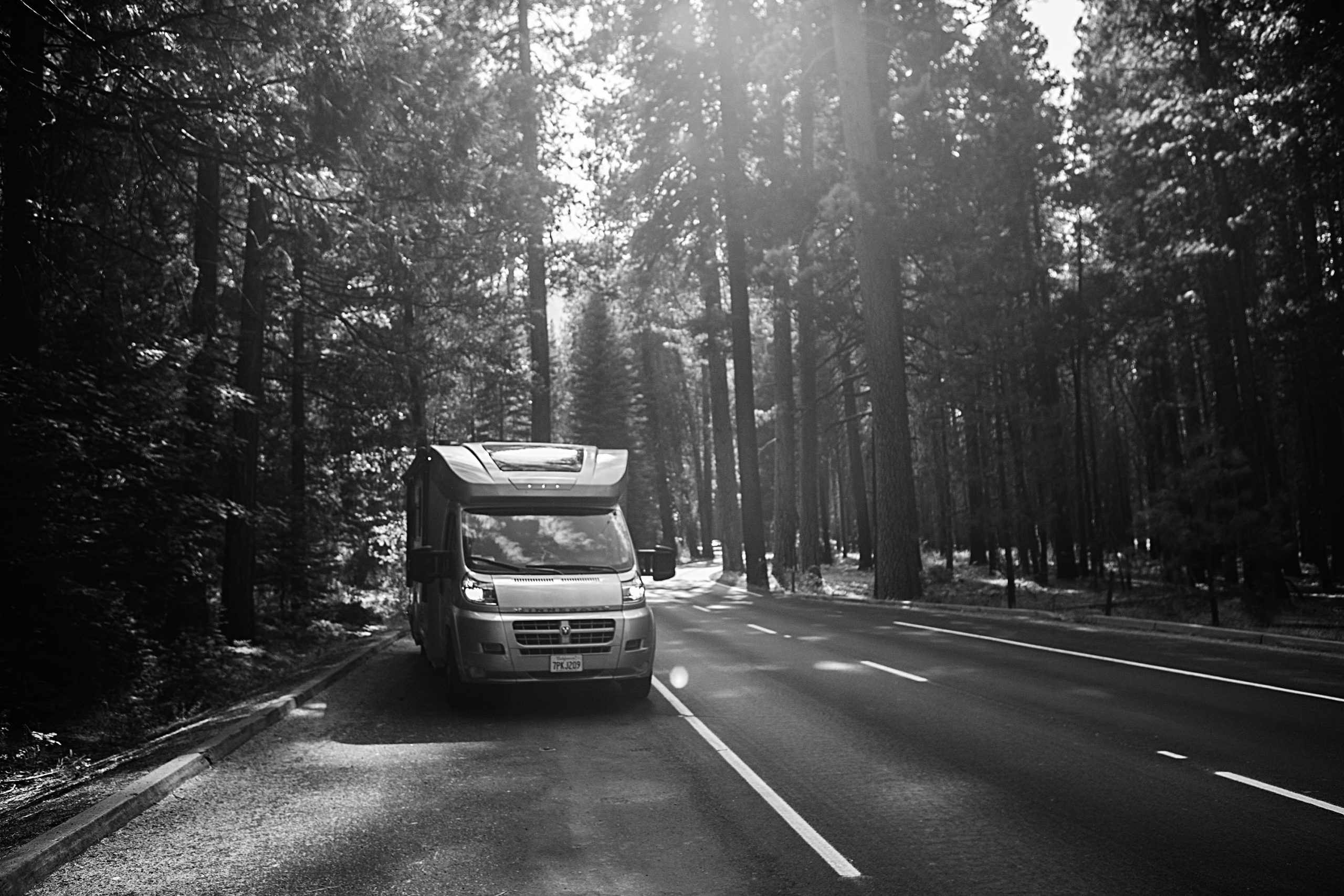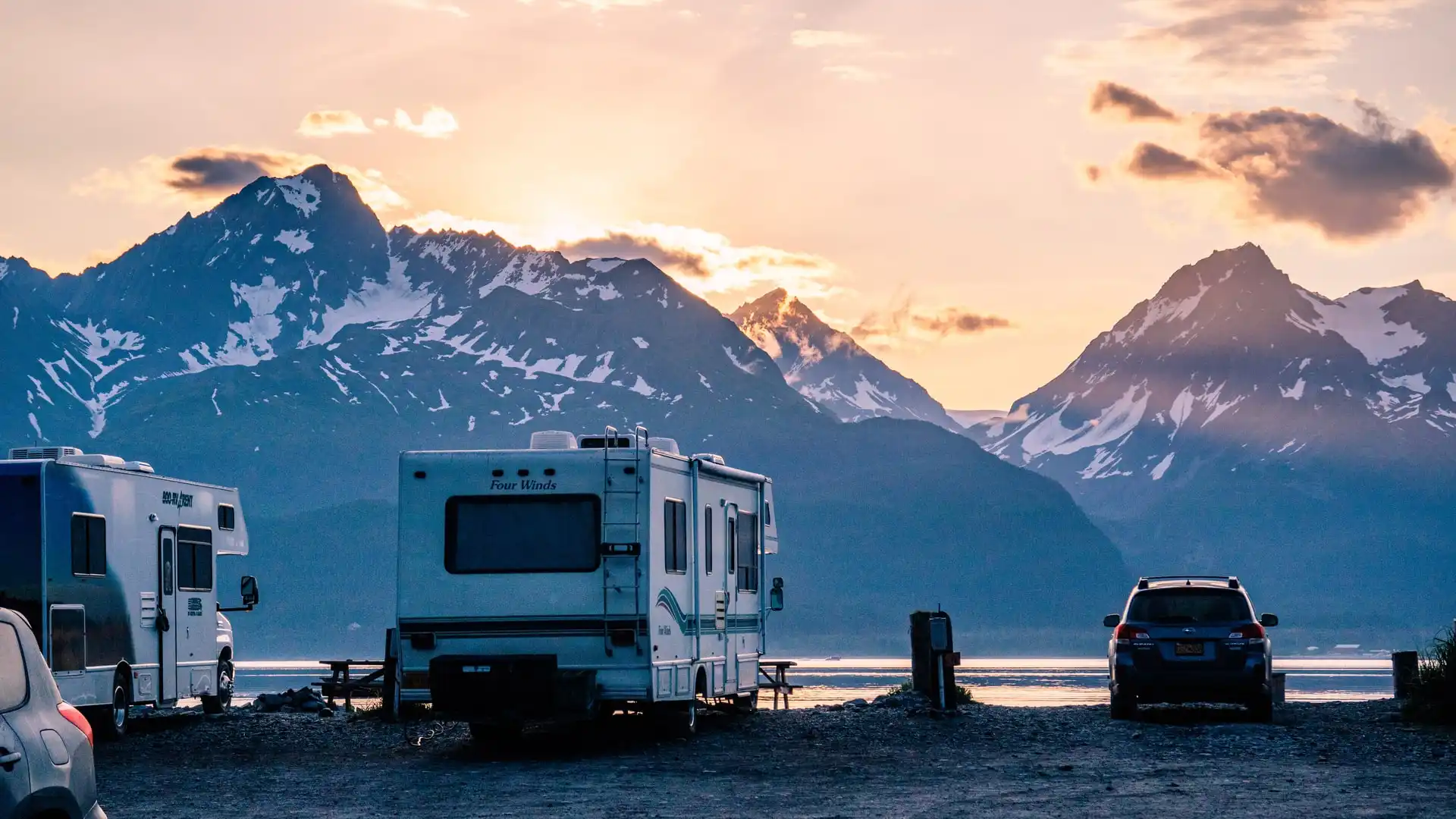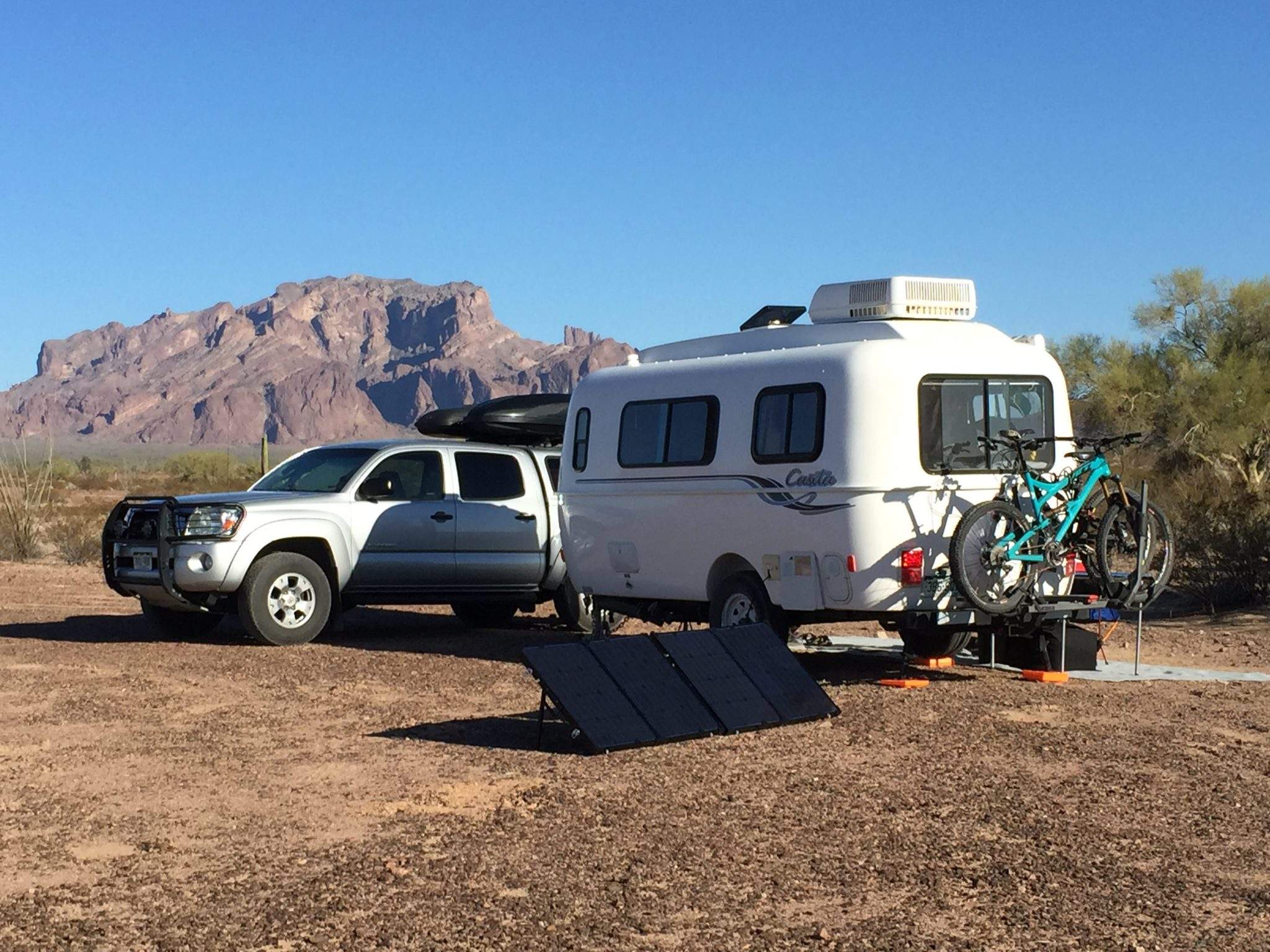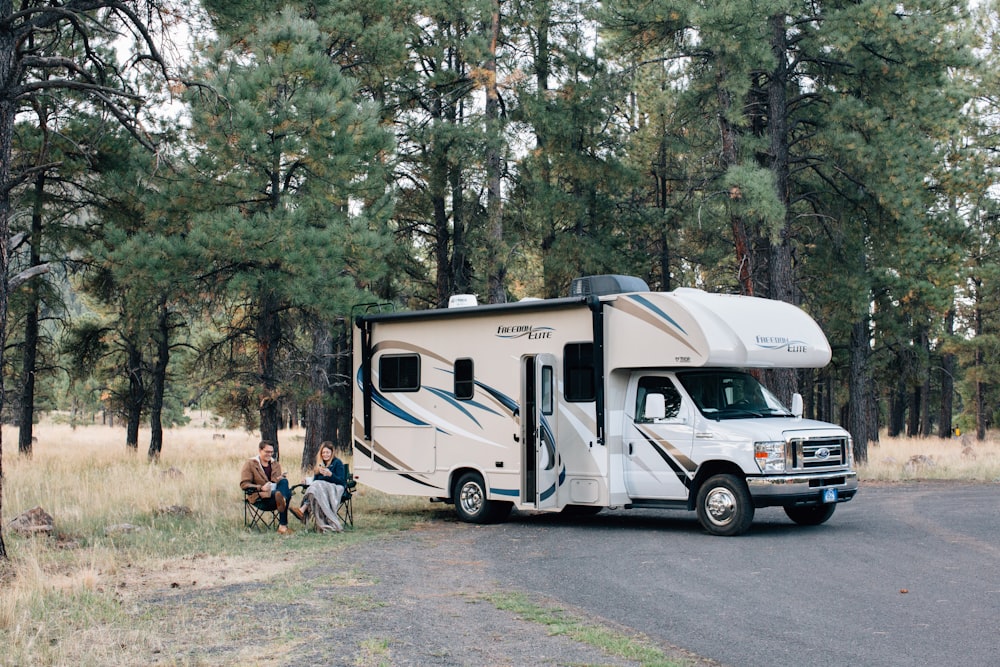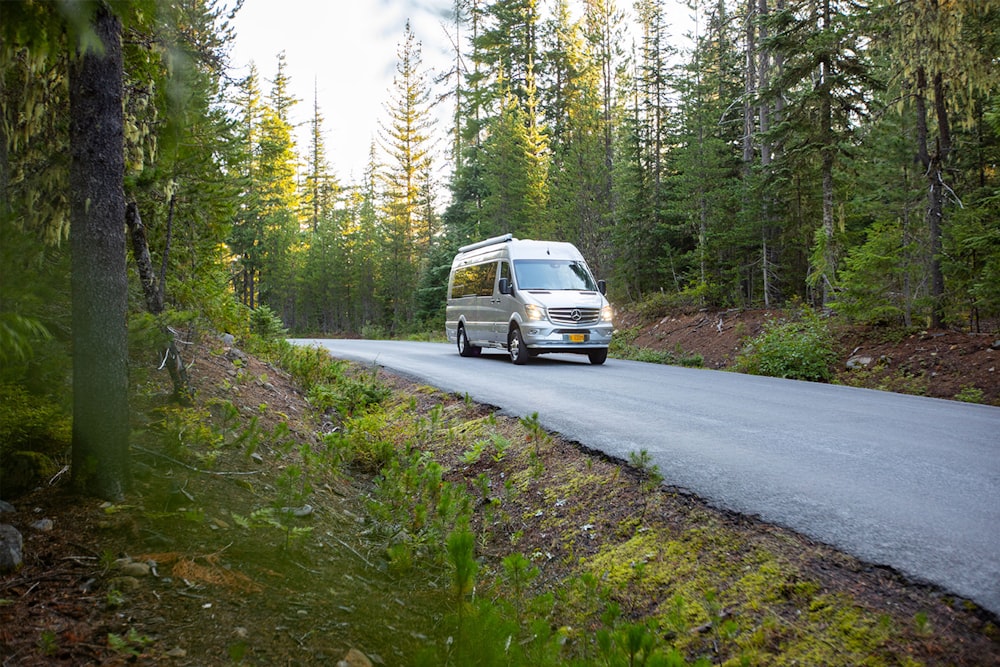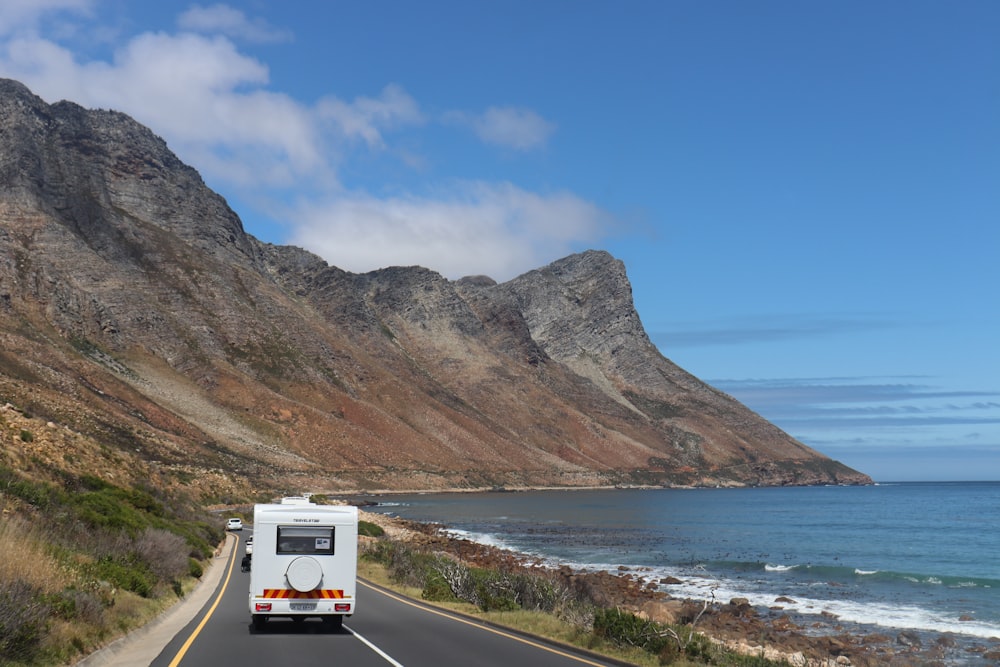“In school, you’re taught a lesson and then given a test. In life, you’re given a test that teaches you a lesson.”
Tom Bodett
Tom Bodett had it right when he said those words. We’ve certainly found them to be true while living in our RV. Since we made our tiny house on wheels, the Casita trailer, our home seven months ago, life has been full of adventure— and lessons.
There has definitely been a big learning curve to living in a tiny space for such long periods of time. Living on the road full-time has many little challenges I never anticipated before leaving. I get a lot of questions from people we meet about how we do it, and thought I would use this post to share a few random practical lessons for living in a small RV full time.
Some lessons are simple, and others take a little more explaining. But all are applicable to RVers, whether you’re a full-timer or a weekend road-tripper. Here are fourteen things that I have learned living in an RV.
1. There is a trade-off between mobility and luxury.
When picking out an RV remember that everything is a trade-off between luxury and mobility. The smaller and lighter you are, the easier it is to travel fast and far cheaply. The bigger and more luxurious your camper is, the more gas it takes, and the harder it is to park it or find campsites.

2. There is more than one way to travel.
Before I left to travel, I read a lot of travel blogs. If you spend too much time on the internet you get the impression that there are just a few travelers out there and they all blog. The reality is that there are lots of people out there traveling, and most of them don’t blog.
What really surprised me was not only the number of people out there traveling, but the different ways people are doing it. We meet people living in huge Class A campers pulling trucks, and other people living out of tiny backpacks and sleeping on the side of the road. You’ll come across people living in giant overland campers who have spent over 15 years traveling across the globe, and bicyclists riding the entire continent from Alaska to Argentina. We met a guy riding around the entire perimeter of the continent, starting and ending in Brazil. We have even seen people biking south to Argentina and then rowing a tiny row-boat to Africa.
It is a big world, and there are lots of ways to see it. Still, I am surprised by how many people I have met that are living their dreams and seeing the world in so many unique ways.
3. Don’t skimp on the sewer hose.
Time for some practical advice. There are many places in life to save money. A sewer hose that is going to carry 30 gallons of your own excrement is not one of them. Do not learn this lesson the hard way. You don’t need to get the best one out there; middle of the road is fine. We use a Rhino Flex and it works well.
4. Expect things to break.
Our Casita is a very well built RV, and is considered much more durable than most. Still, when you tow it down a dirt road for 120 miles things will break. Even if you stay on the pavement, things will still break. I carry a 120-piece mechanic’s tool kit, as well as some basic tools like a pipe wrench, rubber mallet, and screwdrivers. YouTube is a great resource for when you just can’t figure it out, and when all else fails, zip ties and duct tape are always good things to have.
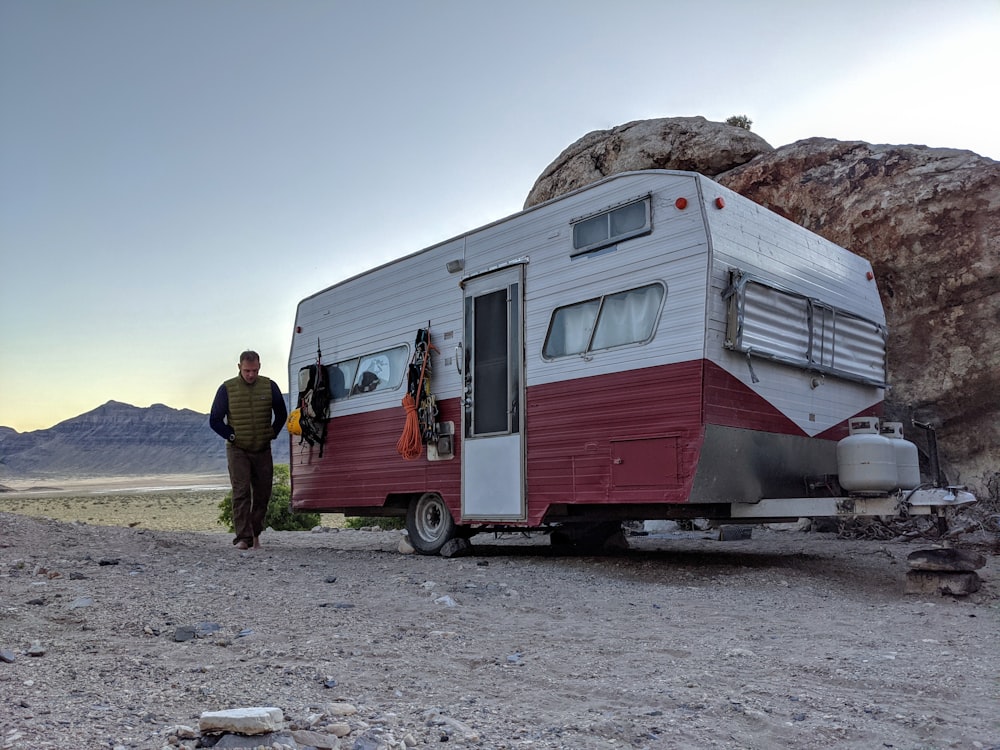
5. Walmart camping is a great option.
RVs can be expensive. Especially when you are just passing through, you are often paying a lot for services you will not use. If there is a national forest or BLM land nearby, you can usually boondock there for free. For us, this is always the best option. But often, that’s not a possibility.
Luckily, when this is the case, there’s usually another free campground option nearby— a Walmart parking lot. Sometimes, you’ll see as many as 15 rigs there. It’s well-lit, safer than a lot of other options, and best of all, it’s free. If you get the urge for a late-night snack, just walk inside and get whatever you want!
Just remember, always get the proper permission before setting up camp. While the general corporate policy is to allow RVers to overnight, it is ultimately up to each individual store to decide. For more information, check out our article on overnighting at Walmart.
6. Be mindful of towing, always.
There’s enough towing tips and tricks out there to dedicate an entire post to the topic, but for now I will just do the basics.
Towing rule #1: Don’t tow too much. Approximately 60% of your truck’s weight rating is good. Get a solid friction anti-sway weight distribution hitch and learn how to set it up correctly. Make sure your trailer is level, or slightly nose down, and take it slow.
7. There’s more than just the United States to explore via RV.
We meet a lot of people who have traveled all over the states, but refuse to go to Canada and Mexico. We love British Columbia, and traveling into Mexico is a blast. Get yourself a passport and see what else this beautiful continent has to offer!

8. You’ll have meaningful experiences with others.
It’s just different meeting people on the road. A lot of the social barriers that exist in everyday life seem to melt away. You are both travelers in a strange land, and immediately you have that in common. People also seem more open. Something about travel seems to make the mindless chit-chat that dominates everyday conversation melt away.
What is left in its place is the ability to talk about more meaningful things, like your passions and desires. There is also no temptation to hide in a shell, because if the conversation does not work out, it’s not as if you have to see the person on the way to work every day. Both of you can just move along to the next adventure.
9. The internet is helpful, but you don’t always need to rely on it.
It’s both your best friend and worst enemy. It’s an amazing time we live in, and the internet allows us to do many of the things we do. Without email and online banking full-time travel would be a heck of a lot harder. It is also amazing to have access to all of the collective knowledge of mankind available to you night and day.
But still… sometimes it’s okay to drive around looking for a restaurant. You don’t always need to Yelp it. Sometimes it’s fine to just look for a campsite and hope you find a nice one without reading every review of every RV park within a 50-mile radius. There is a fine line between using the amazing tool of the internet and losing the ability to go with the flow and just see what you can find.
We really felt this many times this past summer. I am as guilty of obsessing over things on the internet as anyone, if not more so. But in Canada and most of Alaska, we had no data coverage. We were forced to just go for it and see what we found, just like the good new days, and frankly, it was great! Of course, we still use the internet a lot of the time, but I have been trying not to overdo it.
10. Go with the flow.
Be ready for change. Things will break, wildfires will block your path, campgrounds will be full, places you thought would be awesome will be terrible, and places you never heard of will be amazing. If you can be flexible, your adventures will be much more enjoyable. But even more than flexibility, embrace the changes, don’t be married to the plans, and be ready to go with the flow when you feel it.
11. Decision fatigue is real.
I can still remember our first week on the road. We were exhausted all the time. I don’t snore at night, but that first week I snored like a freight train going down the tracks. One of the problems was decision fatigue. We would drive through a campground ten times before deciding on a site, we would agonize over which road to take for hours.
These kinds of decisions get exhausting. In our new life, we made a lot of decisions, but many of them had few consequences. We made decisions on where to eat, or what to get at the supermarket, but now we are constantly bombarded with lots of decisions. Where are we going? Where are we sleeping? This road is closed, where do we go now? If you agonize over every decision this gets exhausting and leads to burn-out. I find it’s best to just pick the best options, commit, and don’t look back.
12. Don’t bring too much crap.
This may be my most important piece of advice in this post. You need half the stuff you think you need, possibly only a quarter of it. The more crap you bring the more you will need to deal with, the more you need to deal with the less time you have to explore, and the more cluttered your mental space becomes. Leave it all behind.
13. Avoid the “stuffel shuffle”.
So you’re going to need to bring some stuff, and how you pack that stuff is important. We follow the old adage “a place for everything and everything in its place” advice. When living in a tiny space, it’s super important to be neat and tidy, but this is more than that. The “stuffel shuffle” is what we call it when you have to move one thing… or two things… or ten things to get to what you need.
This gets old really fast. Organize and pack in such a way that you can access the items you need without having to move a bunch of stuff. If this is not possible see the previous paragraph.
14. Most importantly, do it your own way.
Seriously, do what makes sense for you. Do what calls to you, and try as best you can not to model it on something you think it should be. Like I said earlier, there are a lot of people living on the road in a lot of different ways, and finding what works best for you is what matters.
If this is a lifestyle you are thinking about remember that there are a lot of different ways to make it work, and a lot of opportunities waiting. The first step is to get out the door. Long-term travel is a lot like skydiving. It is the first step that’s hard.
We are still novices at this, and we are learning a lot as we go along. It takes time for us to try things out. Sometimes we find we are moving too fast and starting to burn out. Other times we have found we over-committed to a place and are ready to move on long before we had planned to leave. Still, we are finding a way to live and see the world, and it’s fun to find what works for us as we go along.
Hit the Road
There are lots of ways to get out and learn about living on the road for yourself, and one of the best ways out there is to rent a rig from Outdoorsy.
There is really no other way to rent a different type of camper every time you go out, and find out what works for you. It also gives you the opportunity to learn all about the camper when you pick it up from the owner.
